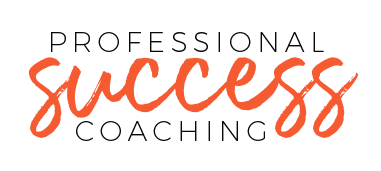Handling common interview questions
Host Sheila Boysen-Rotelli discusses how to effectively explain who you are as a professional. If you’ve ever heard the phrase, ”it’s not about what you know; it’s about who you know,” then you can understand that making connections is vitally important to success in your career and life. Learn how to make the best first impression that you can!
Episode Highlights:
The interview process can vary greatly depending on the role and company that you are interviewing with
Consider the person that is asking you these interview questions
Interviewers might be looking for different things depending on their role
The HR Manager aims to ensure that candidates are a good fit for the position and usually run the initial screening interview
A Supervisor will ask more in-depth questions about specific skills that the job requires and will be very knowledgeable about the role
Coworkers just want to know what it’s like to work with you and how you communicate
You can reach out to the HR Manager to see your schedule beforehand and prepare yourself
While each industry and organization follows some normal questions, they each have a different process
Do your research on each company so that you can use the right language based on literature that you see
Glassdoor.com can provide great information from those people that have worked for and interviewed with these companies
There are usually three basic formats that interview questions follow
Behavioral questions use your past behavior to predict how you may behave in the future; provide specific examples. “Tell me about a time…”
Situational questions aim to evaluate your planning skills, problem-solving abilities, and analytical skills. “How would you…”
Historical questions are based on your resume and past experiences for the most part
“Tell me about your strengths.” - Identify your competencies with specific examples
When they ask for your weaknesses, they want to see how realistic you view your own competencies
Determine what you don’t have based on the job description
Choose the item that is least important or the easiest to learn
“Why are you interested in this company or our position?”
They want to know how committed you are to the profession, product, or service
Do you understand the position?
How do you plan on contributing?
Utilize research into the company to frame your answers to these questions with specific information about the company
3 Key Points:
Depending on the role of the interviewer, different people will have different motivations for the questions that they ask.
There are 3 basic formats for the questions that will be asked during an interview: Behavioral, Situational, and Historical.
A deep analysis of the job description will allow candidates to prepare themselves for strength and weakness-based interview questions.
Tweetable Quote
“I know this can feel intimidating sometimes, but with some practice and some planning you can really bring more confidence into your interviews.” - Sheila Boysen-Rotelli
“Even though there are common interview questions...there are no common answers.” - Sheila Boysen-Rotelli
“SAR: this is the method of outlining and explaining the situations, the actions you took, and the results that came away from it.” - Sheila Boysen-Rotelli
“They just want to know that you have a realistic view of yourself and can overcome any challenge that might be presented.” - Sheila Boysen-Rotelli
“No matter what question you get asked, it always comes down to ‘why should I hire you.’” - Sheila Boysen-Rotelli
Resources Mentioned:
Claim your free six-step job search success workbook here
Contact Sheila at sheila@professionalsuccesscoaching.com
Glassdoor: https://www.glassdoor.com/index.htm

